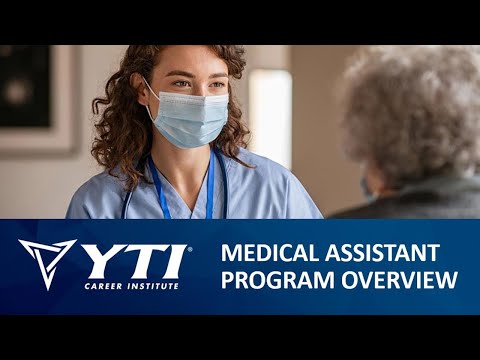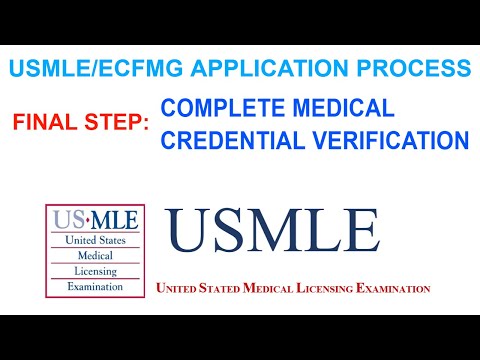The Quickest Way to Become a Medical Assistant
Contents
- Introduction: Why You Should Become a Medical Assistant
- The Medical Assistant Job Market: Bright Prospects Ahead
- The Quickest Way to Become a Medical Assistant
- The Medical Assistant Education and Training Path
- The Medical Assistant Certification Process
- The Medical Assistant Salary and Job Outlook
- The Medical Assistant Job Description
- The Medical Assistant Skillset
- The Medical Assistant Work Environment
- Wrapping Up: Is Becoming a Medical Assistant Right for You?
Discover the quickest way to become a medical assistant and the skills you need to succeed in this rapidly growing field.
Checkout this video:
Introduction: Why You Should Become a Medical Assistant
Medical assisting is one of the most in-demand careers in healthcare, and it’s a great way to get started in the medical field. If you’re considering a career in healthcare, here are five reasons why you should become a medical assistant:
1. Medical assistants are in high demand. According to the Bureau of Labor Statistics, employment of medical assistants is expected to grow 19% from 2016 to 2026 — much faster than the average for all occupations.1 With an aging population and an increasing focus on preventive care, there will be more need for qualified medical assistants.
2. Medical assistants can earn a good salary. The median annual wage for medical assistants was $32,480 in May 2016.2 And because medical assisting is an entry-level position, you can start working and earning a paycheck quickly after completing your training.
3. You can get training in as little as 9 months. Unlike some other healthcare careers that require years of schooling, you can complete a medical assisting program in as little as 9 months.3 And many community colleges and trade schools offer flexible scheduling options that allow you to complete your training while working or taking care of other obligations.
4. You’ll have job security as a medical assistant. As a medical assistant, you’ll have the satisfaction of knowing that you’re playing an important role in keeping people healthy — and that your skills will always be in demand. In addition, because medical assisting is such a diverse field, you’ll have plenty of opportunities to advance your career if you decide to do so down the road.
5. You can work in any number of settings. Medical assistants work in physician’s offices, hospitals, clinics, and other healthcare facilities — so if you want to change up your work environment or try something new, it’s easy to do so as a medical assistant.
The Medical Assistant Job Market: Bright Prospects Ahead
The medical assistant job market looks very promising. According to the latest data from the Bureau of Labor Statistics, the number of medical assistant jobs is expected to grow by 29% between 2016 and 2026. That’s much faster than the average for all occupations. So if you’re thinking of starting a new career as a medical assistant, now is a great time to do it.
There are a number of reasons why the demand for medical assistants is growing so rapidly. One is that our population is aging and more people are going to need medical care. Another is that more people now have health insurance thanks to the Affordable Care Act And as more people have health insurance they’re going to want to use it and get preventive care and other services that they may have put off in the past because they couldn’t afford it.
All of this means that there will be lots of opportunities for medical assistants in the years ahead. If you’re interested in this career, there are a few things you should know about what it takes to be a medical assistant and how you can get started on your new career path.
The Quickest Way to Become a Medical Assistant
There is no one single route to becoming a medical assistant. However, there are some key steps you can take to help you on your way.
Firstly, it is important to have a strong foundation in basic medical knowledge. This will give you the ability to understand the medical jargon that you will encounter in your day-to-day work as a medical assistant. You can gain this knowledge by taking a course at a local community college or online.
Secondly, it is beneficial to get some experience working in the medical field, even if it is not directly related to being a medical assistant. This will help you understand the day-to-day workings of a medical practice and give you an insight into the different roles that staff members play. You can gain this experience by volunteering at a local hospital or health clinic.
Finally, once you have gained some basic knowledge and experience, you can start applying for medical assistant jobs. It is important to remember that each state has different requirements for medical assistants, so be sure to check with your state’s Board of Medicine before applying for any positions.
The Medical Assistant Education and Training Path
Medical assisting is one of the few health care professions that does not require a four-year degree for entry-level positions. In fact, most medical assistants have completed a one- or two-year program at a community college, vocational school, or technical institute. Some medical assistants complete on-the-job training, but most employers prefer to hire those with formal education.
How much formal education you need depends on the state in which you work. Some states do not regulate medical assisting, so training requirements vary from employer to employer. If you plan to work in a state that does regulate medical assisting, you need to complete an accredited program and pass a certification exam to earn the credential of Certified Medical Assistant (CMA).
The majority of accredited programs leading to certification as a medical assistant take about two years to complete. These programs typically award an associate degree or diploma in medical assisting. A small number of programs offer bachelor’s degrees in medical assisting, but these are generally not required for entry-level positions.
The Medical Assistant Certification Process
There are several steps involved in becoming a certified medical assistant. The first step is to complete an accredited medical assistant training program. Once you have completed your training, you will need to pass the certified medical assistant exam administered by the American Association of Medical Assistants (AAMA). Once you have passed the exam, you will be eligible for certification and will need to maintain your certification by completing continuing education credits on a regular basis.
The Medical Assistant Salary and Job Outlook
The medical assistant salary and job outlook are both positive. The Bureau of Labor Statistics reports that the median annual salary for medical assistants was $31,540 in May of 2016, and that jobs in the field are expected to grow by 29% from 2016 to 2026—much faster than the average for all occupations. Medical assistants typically need to have a high school diploma or equivalent, although some jobs may require postsecondary education, and most states regulate medical assistants.
The Medical Assistant Job Description
The medical assistant job description is a broad one. It encompasses everything from greeting patients and scheduling appointments to taking medical histories and documenting patients’ vital signs. In some cases, medical assistants may also be responsible for giving injections or performing basic laboratory tests.
Becoming a medical assistant is one of the quickest and most effective ways to enter the healthcare field. With on-the-job training and certification, you can be ready to work in as little as a few months. And, because the demand for medical assistants is expected to grow much faster than the average for all occupations through 2024, according to the U.S. Bureau of Labor Statistics, you’ll have your pick of job opportunities when you graduate.
The Medical Assistant Skillset
Medical assistants are in high demand, and with good reason. These professionals perform a variety of tasks that keep the wheels of a medical practice turning smoothly. If you’re considering a career as a medical assistant, you’re probably wondering what skills you need to get the job done. Here’s a quick overview of the skills you’ll need to succeed in this rewarding career.
First and foremost, medical assistants must be proficient in basic medical knowledge. This includes an understanding of human anatomy, basic medical procedures, and common medications. In addition, medical assistants must be able to effectively communicate with patients and other members of the healthcare team. Strong writing and communication skills are essential in this role.
Medical assistants must be able to multi-task and prioritize their work effectively. They often have to keep track of multiple patients at once and make sure that each one receives the care they need in a timely manner. Strong organizational skills are essential for success in this career.
Finally, medical assistants must have strong people skills. They need to be able to put patients at ease and build rapport quickly. Medical assistants often serve as the first point of contact for patients, so it’s important that they be able to create a positive first impression.
The Medical Assistant Work Environment
Medical assistants work in a variety of clinical settings, including doctor’s offices, clinics, hospitals, and even virtual practices. Their duties vary depending on the size and type of facility they work in, but they typically perform both administrative and clinical tasks.
Some common administrative duties include answering phones, scheduling appointments, filing medical records and billing patients. Clinical duties may include taking patient vital signs, preparing patients for exams, assisting with procedures, collecting lab specimens, and providing patient education.
Medical assistants typically work during regular business hours, but some may work evenings or weekends to accommodate their patients’ schedules. Many medical assistants also have the opportunity to work from home, especially those who work in virtual practices.
Wrapping Up: Is Becoming a Medical Assistant Right for You?
We hope this guide has provided you with all the information you need to make an informed decision about whether becoming a medical assistant is right for you.
In short, medical assistants are in high demand, with jobs expected to grow much faster than average in the coming years. They play an important role in healthcare, often serving as the first point of contact between patients and doctors. And while the job can be demanding, it is also highly rewarding, both in terms of job satisfaction and earning potential.
If you’re interested in pursuing a career in medical assisting, the first step is to find a reputable training program that can give you the skills and knowledge you need to succeed in this field.







